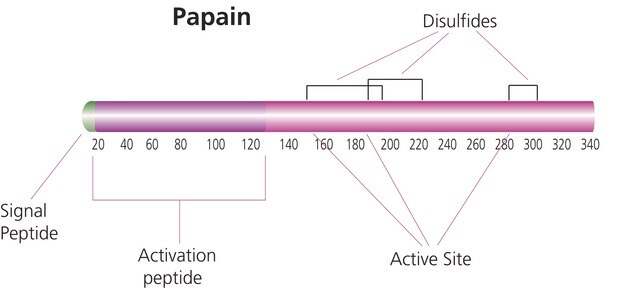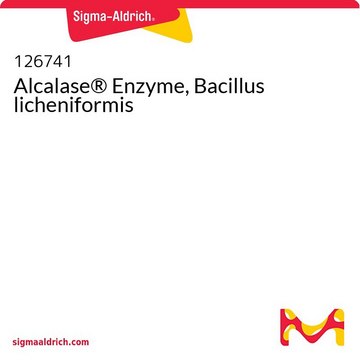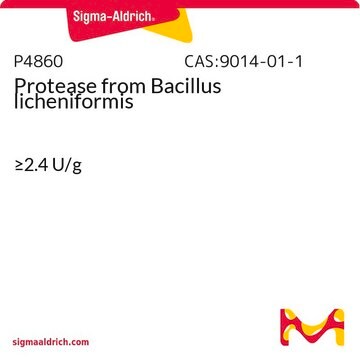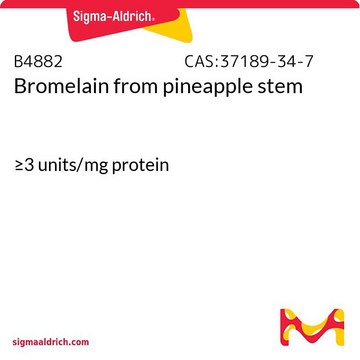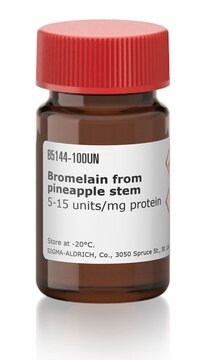Wichtige Dokumente
76216
Papain aus Carica papaya
solution, light brown, ≥10 U/mg protein (~25 mg/ml)
About This Item
Empfohlene Produkte
Biologische Quelle
papaya
Form
solution
Spezifische Aktivität
≥10 U/mg protein (~25 mg/ml)
Mol-Gew.
Mr ~23000
Methode(n)
cell culture | mammalian: suitable
single cell analysis: suitable
Farbe
light brown
Lagertemp.
2-8°C
Suchen Sie nach ähnlichen Produkten? Aufrufen Leitfaden zum Produktvergleich
Allgemeine Beschreibung
Anwendung
- in the enzymatic dissociation of rat cortices to extract astrocytes for cell culture
- to study its effects on Alpaca seminal plasma viscosity and sperm function
- to study its effects on the yield and cryo-survival of Rhinoceros spermatozoa
Biochem./physiol. Wirkung
Einheitendefinition
Signalwort
Danger
H-Sätze
Gefahreneinstufungen
Eye Irrit. 2 - Resp. Sens. 1 - Skin Irrit. 2 - STOT SE 3
Zielorgane
Respiratory system
Lagerklassenschlüssel
11 - Combustible Solids
WGK
WGK 1
Flammpunkt (°F)
Not applicable
Flammpunkt (°C)
Not applicable
Persönliche Schutzausrüstung
dust mask type N95 (US), Eyeshields, Faceshields, Gloves
Hier finden Sie alle aktuellen Versionen:
Besitzen Sie dieses Produkt bereits?
In der Dokumentenbibliothek finden Sie die Dokumentation zu den Produkten, die Sie kürzlich erworben haben.
Kunden haben sich ebenfalls angesehen
Unser Team von Wissenschaftlern verfügt über Erfahrung in allen Forschungsbereichen einschließlich Life Science, Materialwissenschaften, chemischer Synthese, Chromatographie, Analytik und vielen mehr..
Setzen Sie sich mit dem technischen Dienst in Verbindung.
